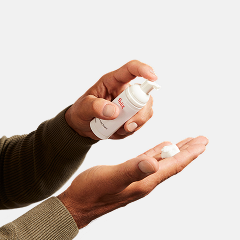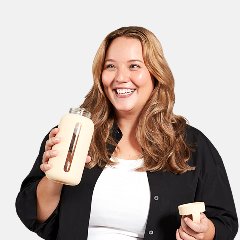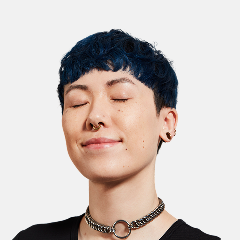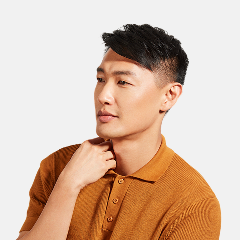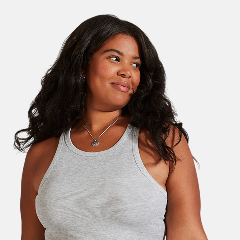Download the Felix App
Earn reward, visit our shop and get exclusive offers on the app
Download now

Through Felix, you can get Tretinoin prescribed by a licensed healthcare practitioner with free delivery to your door.
Tretinoin is also known as retinoic acid or Vitamin A Acid.
Tretinoin is most commonly used as a topical treatment for acne (acne vulgaris). The medication is available as a gel. There are various dosages available when using tretinoin for acne. You should consult your healthcare practitioner to determine the best one for you.
For more resources, including a full list of the risks and benefits of tretinoin, please review the product monograph.
Although the exact reasons why tretinoin is effective against acne is unknown, it’s believed to accelerate skin growth and turn-over of cells, as well as increase the flow of cellular debris (i.e., dead skin cells and oils) to the surface for elimination. Through this it helps to reduce the acne condition.
Tretinoin is indicated for use as a topical treatment for acne (acne vulgaris); typically in Grades I, II, or III, where comedones, pustules, papules are commonly seen.
Tretinoin should be applied daily, preferably before bed.
The medication should be used where acne lesions are present; using enough of the non-oily gel to lightly cover the affected area.
It’s important to note that inflammatory lesions may worsen during the early weeks of use, because of previously unseen comedones and papules.
Patients should start to see changes after 2 - 4 weeks of treatments, but results may take up to 6 - 8 weeks. Once the condition has improved, it can be maintained with less frequent use of tretinoin.
In cases where patients experience severe erythema at the start of treatment, talk to your healthcare practitioner at Felix. They may suggest altering the frequency of application and amount you’re using, and then increase your treatments progressively.
There are no commonly occurring side effects from using tretinoin cream, but it’s important to note that overuse of tretinoin can cause:
In people with sensitive skin, there are additional side effects to watch for, such as:
If you start to experience discomfort or any severe side effects from using tretinoin, stop using the medication and consult with your healthcare practitioner from Felix.
They may suggest reducing your dosage, or an alternative medication that will work better for you.
Apart from being mindful of reactions during usage, there are a few other types of people who shouldn’t use tretinoin, such as:
When it comes to specific usage, it’s important to know that you shouldn’t use tretinoin:
As well, people who are going to be spending time in the sun may want to be careful using tretinoin, because it can increase your risks of getting a sunburn.
It’s important to note that using tretinoin for acne more than recommended won’t increase the likelihood of achieving better results. In fact, overuse of tretinoin can result in increased skin irritation and worsen the chances of experiencing negative side effects.
Luckily, if you get your online tretinoin prescription from Felix, you can chat with your healthcare practitioner about any side effects you’re experiencing - at any time.
It’s important to note that ‘retinoid’ is actually a catch-all term that’s used to describe any group of molecules derived from Vitamin A. This includes both retinol, as well as prescription retinoids.
Tretinoin is a form of retinoid that’s indicated for use in the treatment of acne vulgaris (acne).
Further reading

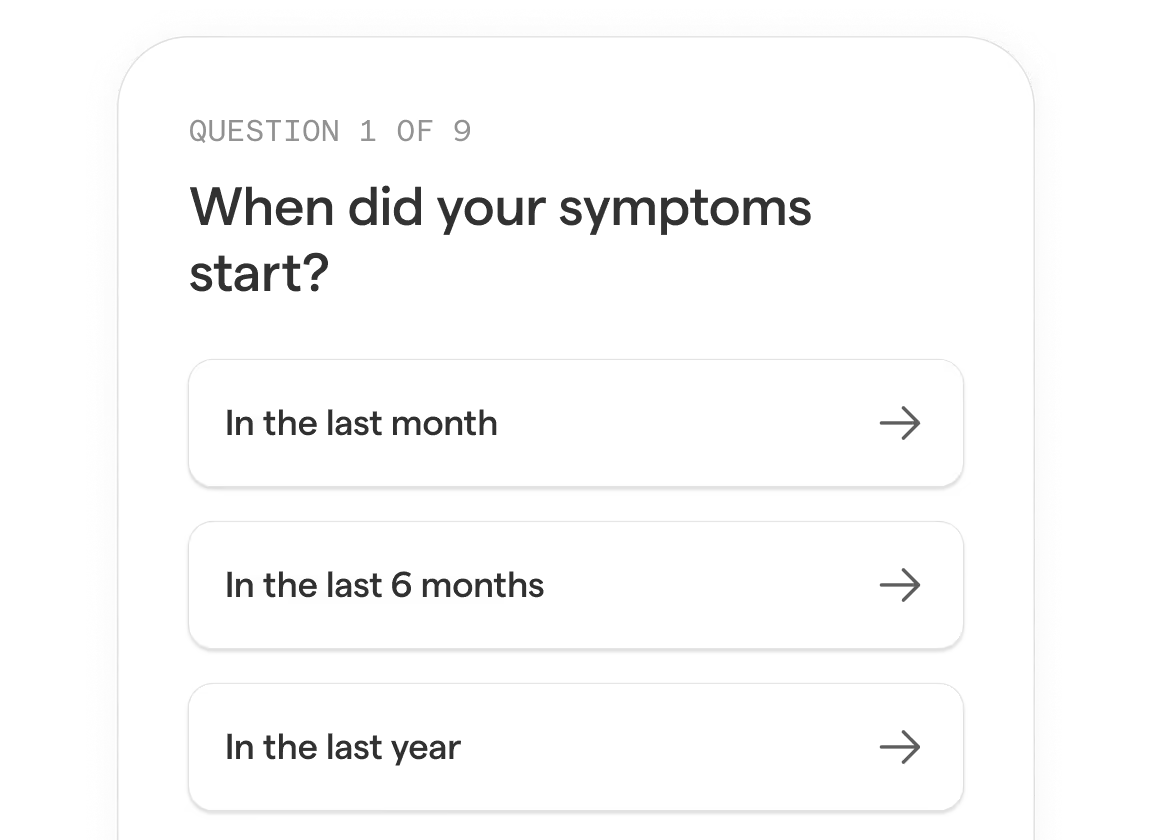
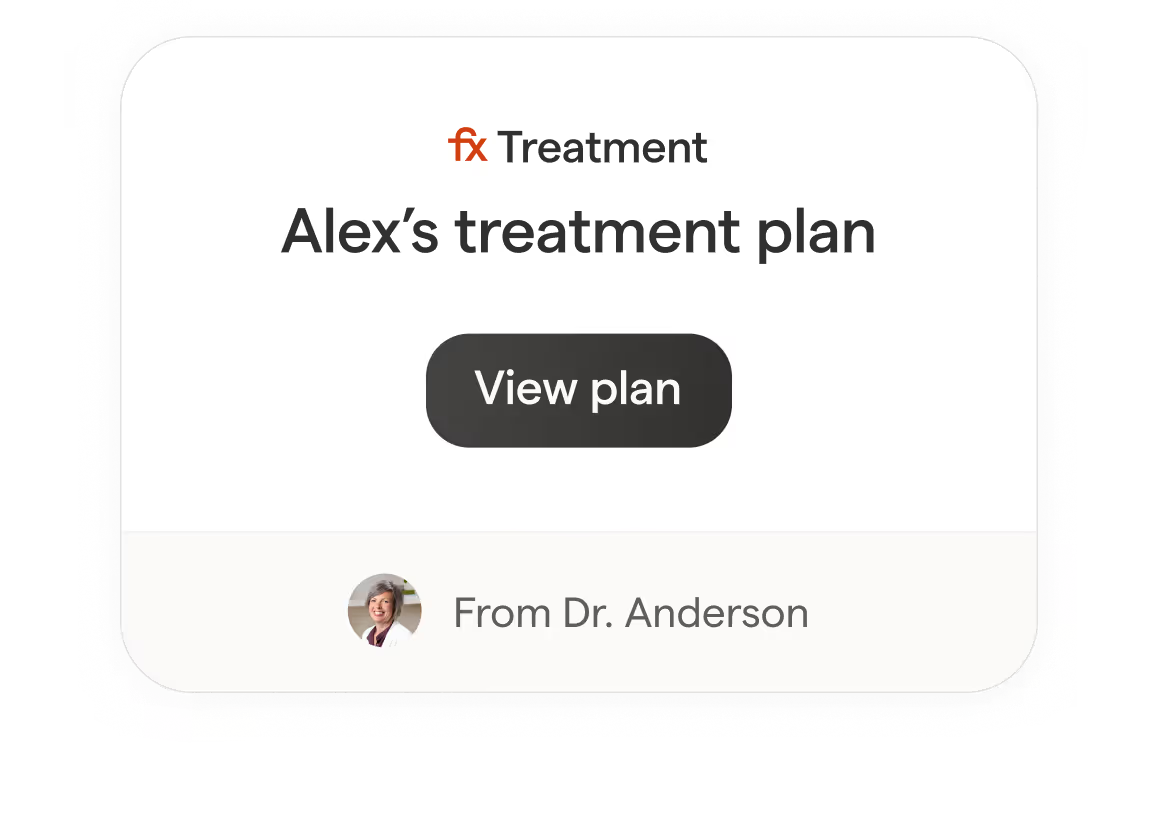
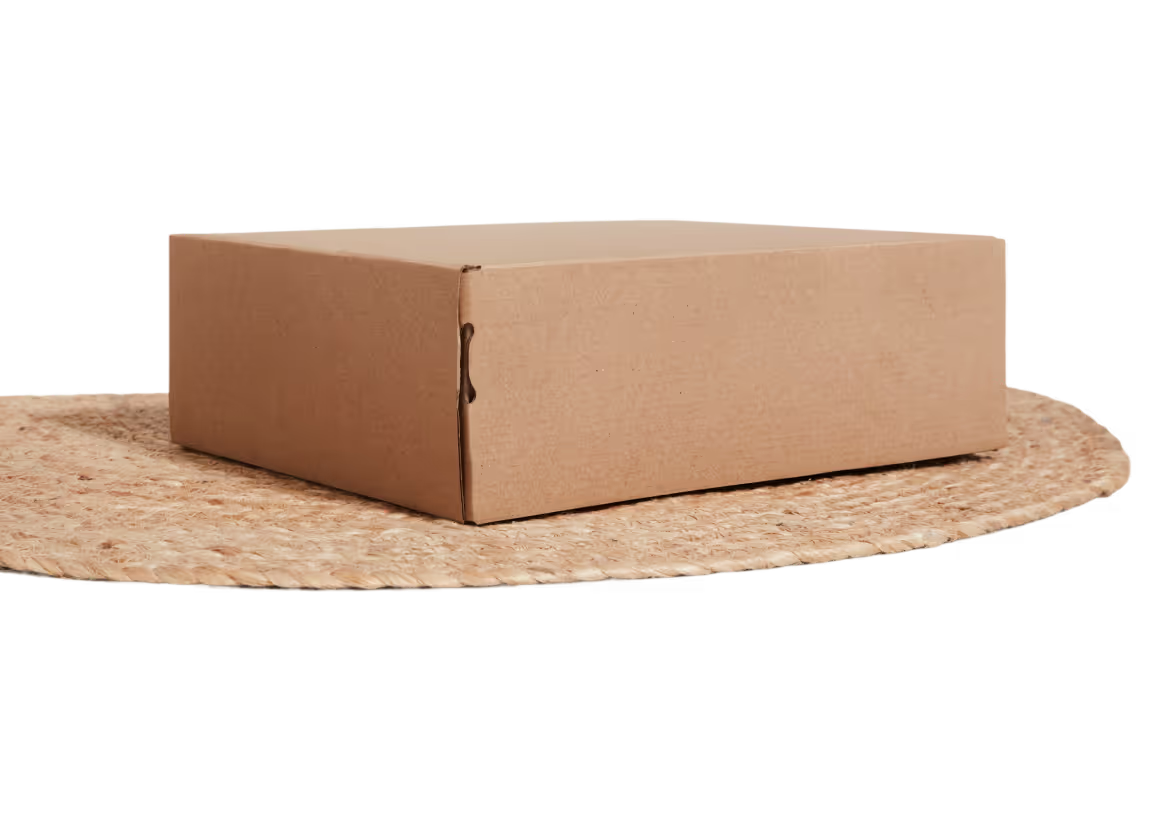




To get a Tretinoin prescription in Canada you have to be assessed by a registered healthcare practitioner, like the ones at Felix.
A healthcare practitioner can assess your specific concerns, as well as other potential interactions such as other medications you may be taking, to determine if a Tretinoin prescription is a good choice for you. While Tretinoin is well tolerated by most people, it can have side effects in the first months of use. When you speak with a healthcare practitioner to get your prescription, they can determine which Tretinoin strength will help you address your concerns with reduced side effects.
Your family doctor or a doctor at a walk-in clinic will be able to write you a prescription for Tretinoin, but there’s an even easier way. With Felix Health, you can have an online visit with a healthcare practitioner and get a Tretinoin prescription without having to visit a doctor’s office. Plus, you can have your medication dispensed from a Felix pharmacy and have it delivered right to your door for free.
Yes, in Canada, you can get online Tretinoin prescriptions, but first, you need to speak with a licensed healthcare practitioner, so they can ensure Tretinoin is the right treatment for you.
If they believe that you could benefit from Tretinoin treatments, they can write you a prescription, and with Felix, you can have your medication shipped directly to your home.
No, there’s no need to book an appointment or wait around a doctor’s office to get Tretinoin online.
All you have to do is complete an online assessment with Felix, at your convenience. If the healthcare practitioner believes that Tretinoin is right for you, they can have your prescription shipped right to your home for free.
Talking to a healthcare practitioner about getting online Tretinoin prescription is a seamless process when you use Felix.
All you need to do is complete an online assessment with one of our healthcare practitioners. They’ll be happy to talk with you about whether Tretinoin is right for you, based on your current needs and medical history.
You can’t buy Tretinoin creams or gels without a prescription from a licensed healthcare practitioner.
However, Felix is making this process quick and comfortable for Canadians. Just complete an online assessment with one of our experts. If they believe Tretinoin treatments are a good option for you, they’ll be able to write your prescription and have the medications shipped directly to you for free.
No, Tretinoin is not available over-the-counter in Canada.
However, if you’re looking for Tretinoin for acne online in Canada, all you have to do is complete an online assessment with Felix. If the healthcare practitioner believes that Tretinoin treatments are right for you, they can provide a prescription.
In some cases, getting Tretinoin may be covered by your insurance company. You’ll need to speak to your insurance representative to see whether you’re covered to get Tretinoin treatments.
The good news is that if your prescription is covered, Felix can bill your insurer directly, and then mail your medication to you at no additional cost.
It's important to note that insurance coverage for online medications through Felix doesn't include the cost of your assessment.
Felix is Canada’s first truly integrated healthcare platform. We provide on-demand treatment for everyday health needs like weight loss, mental health, sexual health, and more. Founded in 2019, our digital-first approach to healthcare includes everything from diagnosis to prescription — all accessible from the comfort of home.
No. Felix provides a faster, hassle-free way for you to get a treatment plan for certain conditions, but our service does not replace your primary care provider. For matters that extend beyond obtaining a lifestyle treatment safely and easily, we encourage you to consult your primary health practitioner in person — whether for checkups, personal health concerns, or to inform them about your current treatments or treatment plans.
Absolutely. Our online assessments have been designed to ask all the necessary questions required for diagnosis. We've worked with specialists to create an assessment process that can provide sufficient information for the healthcare practitioner to determine whether or not you are eligible for a prescription and craft an appropriate treatment plan.
Call 911 or proceed to your nearest emergency room immediately. Felix is not intended for medical emergencies. Once the emergency has been addressed or resolved, contact your prescribing practitioner to inform them of your experience as this may impact your current treatment plan.
Anyone who is 18 years or older (16 or older for acne and birth control prescriptions), and is located in Alberta, British Columbia, Manitoba, Newfoundland and Labrador, Nova Scotia, Prince Edward Island, Saskatchewan or Ontario. We cannot ship treatments outside of these provinces at this time.
After creating an account, you will complete a medical assessment for evaluation by one of the Felix healthcare practitioners.
During your assessment, you will have the opportunity to send your practitioner questions via secure messaging.
In most cases, practitioners will complete your assessment with secure messaging alone but sometimes they may determine you require an audio or video visit and/or further diagnostic testing to help determine the best treatment plan for you.
If your practitioner has determined a prescription treatment is appropriate, they will approve your visit and write you a prescription. Our pharmacy will then ship your prescription to your home.
You’ll be able to message your healthcare practitioner if you have questions or want to make changes to your treatment at any time.
No. We use an asynchronous telemedicine model so you can complete your online visit in your own time and we save your progress so you can come back later to finish it.
If you are completing a visit in the mental health or weight loss categories, your healthcare practitioner may require a phone or video call to discuss your medical profile further during the assessment process.
Most assessments do not require a phone or video conversation. Once a prescriber has reviewed the info in your assessment they will respond to you via secure instant messages that you can access within your Felix account.
If you are completing a visit in the mental health or weight loss categories, your healthcare practitioner may require a phone or video call to discuss your medical profile further during the assessment process.
You can expect to receive a response from a healthcare practitioner within 24 hours of submission. If you’ve been waiting longer than this, please reach out to our Patient Support team through the chat bubble in the bottom right corner of your account or our Contact Us page.
No. A visit with a licensed healthcare practitioner is required for all treatments currently provided through Felix’s service.
Not long. After completing your assessment, a practitioner will generally respond within 24 hours, and often much sooner.
Treatment plans will be processed within 2-4 business days of your approval date if there is nothing blocking fulfillment.
All packages usually takes 2-3 business days. You will receive an email with your tracking number once your treatment has been shipped.
Absolutely. All Felix shipments arrive in a nondescript blister package so you can have your treatment shipped wherever makes sense for you as long as there is someone there to sign for it.
A signature upon delivery may be required.
There is currently no cost to have your treatment shipped to you from our Felix Pharmacy network.
Yes, your security is paramount to Felix’s mission. Personal health information provided during your medical assessment is strictly and legally confidential between you and the Felix healthcare practitioner.
Beyond that, all your account information (including the medical assessment, credit card, and shipping information, etc.) is also stored safely and securely. Felix is compliant with all federal and provincial health privacy legislation. It is our duty to protect your data with comprehensive security infrastructure and stringent data policies to ensure it stays private and secure.
Read more on our Privacy Policy.
Yes! In Canada, only a licensed healthcare practitioner can write a prescription, and only a registered pharmacist can fill that prescription. We are supported by leaders in the Canadian pharmacology and specialized medical fields. Felix adheres strictly to all the regulations set forth by all applicable Colleges of Pharmacists and Colleges of Physicians and Surgeons in which we operate.
Absolutely. All prescriptions obtained via Felix are provided by licensed Canadian healthcare practitioners—the same as you would get at a hospital, doctor’s office, or clinic. These practitioners do not provide prescriptions unless they deem it medically safe and appropriate to write them based on your medical profile and assessment answers. Our assessments have been crafted by the practitioners on our medical team. Finally, all Felix Pharmacies are provincially accredited just like any retail pharmacy.
Your privacy is our top priority. All your data is 256 bit SSL/TLS encrypted, and we take significant steps to keep your data secure. You can read our Privacy Policy for more information.
Felix charges a fee for the online visit. In most cases the fee is $40 but varies by treatment category. The visit fee includes a prescription valid for up to a year (depending on the condition) and on-going support from the healthcare practitioner or pharmacist.
It depends. Treatment costs vary but will be in line with what you would pay at a pharmacy in person. You will see the estimated cost of your treatment before insurance, during the online visit but will only be billed for medication costs for your prescription once it is approved and sent to our pharmacy. Once approved, your treatment and payment will be processed within one to two days.
Keep in mind that you won’t necessarily need to pay the full price yourself. If you have insurance, Felix’s partner pharmacies will bill your insurer directly. You may also be eligible for financial support in your province.
We accept all major credit cards for any aspect of your treatment not covered by insurance or other financial support
Treatment coverage varies greatly between different insurance plans.
The good news is that if you are covered, Felix can bill your insurer directly, and then process your treatment plan at no additional cost to you. We recommend that you upload your private and/or provincial benefit card during the online visit so that our pharmacy partner can apply any coverage you are eligible for before processing your treatment plan.
Insurance coverage for treatment plans through Felix doesn't include the cost of your visit.
A Felix online visit is considered asynchronous since it is conveniently completed through a secure chat bases system. Currently, asynchronous visits are not covered by insurance or provincial health plans so you will be charged a visit fee, depending on the category of treatment you are requesting.
Medication coverage varies greatly between different plans, provinces, and has specific criteria that determine eligibility. For private insurance, we recommend contacting your benefits administrator with your details and the Drug Identification Number (DIN) and the drug name to determine your coverage.
For more details on provincial health plan coverage see below:
Alberta: Learn more about AHCIP here. Search for covered drugs here.
British Columbia: Learn more about MSP here. Search for covered drugs here.
Manitoba: Learn more about MHSIP here. Search for covered drugs here.
Newfoundland and Labrador: Learn more about MCP here. Search for covered drugs here.
Nova Scotia: Learn more about MSI here. Search for covered drugs here.
Ontario: Learn more about OHIP+ here. Search for covered drugs here.
Prince Edward Island: Learn more about Health PEI here. Search for covered drugs here.
Saskatchewan: Learn more about Saskatchewan Health Coverage here. Search for covered drugs here.

